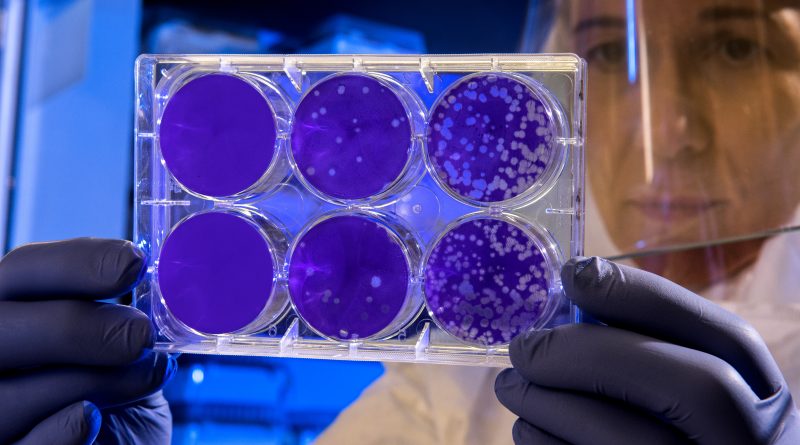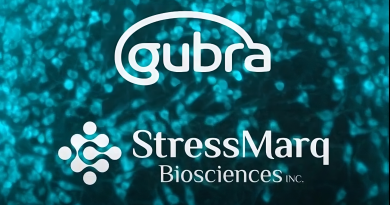Who is developing the Novel Coronavirus Vaccine?
With more than 100,000 confirmed novel coronavirus cases reported across 93 countries and 3400+ deaths, a coronavirus vaccine is needed urgently as government across the world struggle to contain the surge of new infections. Biotechnology and pharmaceutical companies across the world are looking for a solution to a potential global pandemic as the COVID-19 outbreak escalates in Europe, Asia and the Middle East and new cases being confirmed across all continents apart from Antarctica.
In January, the World Health Organization (WHO) declared that the outbreak constitutes a Public Health Emergency of International Concern (PHEIC). On Friday (28 Feb), WHO raised its global risk assessment of the new coronavirus to its highest threat level after the COVID-19 epidemic spread further across Europe and caused US market stocks to plunge.
So who is developing the new coronavirus vaccine?
On the 4th of March WHO published a “Draft landscape of COVID-19 candidate vaccines“, listing 35 candidate vaccines all in pre-clinical stages, developed by institutes and pharmaceutical and biotechnology companies around the world.
The pharma giants
French pharmaceutical giant Sanofi is the third major vaccine producer to announce they will join the efforts to produce a vaccine against the new coronavirus. The company will leverage its previous development work for a SARS vaccine to expedite a potential COVID-19 vaccine.
US-headquartered Johnson & Johnson’s vaccine division, Janssen, also announced its participation in vaccine development, using its “adenovirus platform”. The platform consists of a virus that is modified to look like SARS-CoV-2, but is unable to cause the disease in humans.
British GlaxoSmithKline, another major pharma company, at beginning of February announced that it is entering into a partnership with CEPI (The Coalition for Epidemic Preparedness Innovations) to grant access to anyone who would like to use its adjuvant platform (adjuvants are components that can be added to vaccines to increase the generation of an immune response).
CEPI is an innovative partnership, launched at Davos in 2017, between public, private, philanthropic and civil organisations to create vaccines to prevent future epidemics.
The biotech companies
Smaller biotech specialists, including Inovio and Moderna, have been funded by CEPI to work with their vaccine platforms. Inovio has a DNA platform whilst Moderna uses its messenger “mRNA platform.” These platforms hold the promise of speeding up the phase of development to a vaccine prototype.
Inovio announced in January it will collaborate with Beijing Advaccine Biotechnology Co. to advance the INO-4800 coronavirus (2019-nCoV) vaccine. The leading DNA-based immunotherapy company plans to rapidly develop INO-4800 and has already started preclinical trials and preparations for clinical product manufacturing.
On Monday (Feb 24), Moderna stated that the first batch of its novel coronavirus vaccine, called mRNA-1273, has already been sent to the National Institute of Allergy and Infectious Diseases (NIAID) to be used in the planned Phase 1 study in the U.S.
CEPI also announced an extended partnership with CureVac back in January, a biotech company, to adapt its mRNA vaccine platform to rapidly develop a vaccine against the new coronavirus nCoV-2019.
In coordination with WHO, as it leads the international response, CEPI is also funding the new coronavirus vaccine development program with the University of Queensland and its “protein clamp platform”. Moderna Inc. has also partnered with the U.S. National Institute of Allergy and Infectious Diseases which is using its “mRNA platform.”
The programmes will leverage rapid response platforms to advance vaccine candidates into clinical testing as quickly as possible. The aim is to bring a new pathogen from gene sequence to clinical testing in 16 weeks.
On February 26, Gilead Sciences announced the initiation of two Phase 3 clinical trials to evaluate the safety and efficacy of remdesivir in adults diagnosed with COVID-19 (novel coronavirus). The remdesivir studies will commence in March 2020 and will enrol around 1,000 patients at medical centres mainly across Asia and some other countries around the world with high numbers of confirmed COVID-19 cases.
On the same day, the small US biotech company Novavax, announced it has produced and is now testing multiple vaccine candidates in animal models in order to find the best candidate for human testing. The COVID-19 vaccine candidates were created by using the companies proprietary recombinant protein nanoparticle technology platform. Shares in the company spiked by more than 70% following the announcement Novavax subsequently filed plans to raise $100 million from investors. Phase I Clinical trials are expected to start by the end of spring 2020.
However, these smaller biotechs don’t have large-scale production facilities available to the big pharma giants like Sanofi, J&J or GSK. In the event that these smaller companies prototypes are successful, a larger pharmaceutical producer with scalable manufacturing facilities would need to become involved to get the vaccine to the global pharma markets.
CEPI has also run a funding call for proposals to rapidly develop and manufacture already proven vaccine technologies that can be used against the new coronavirus, which are open to all organizations meeting its criteria and in possession of a readily available platform.
In late January, the University of Hong Kong announced it already had a vaccine, designed from a modified influenza virus vaccine, however they need time to test it.
Scientists in mainland China and the United States are also independently racing to produce a vaccine for the new coronavirus.
At least a year away
In an interview with CNN on Wednesday, Dr. Anthony Fauci from the National Institute of Allergy and Infectious Diseases said that it will take “at least a year to a year and a half at best” to develop a practically deployable vaccine for the coronavirus.
Whilst Moderna has already shipped it’s experimental coronavirus vaccine to US government researchers only six weeks after it started working on the vaccine and Initial trials of the potential vaccine could begin as early as April, the process of testing and approvals would last at least a year.
Article Last updated 06/03/2020





